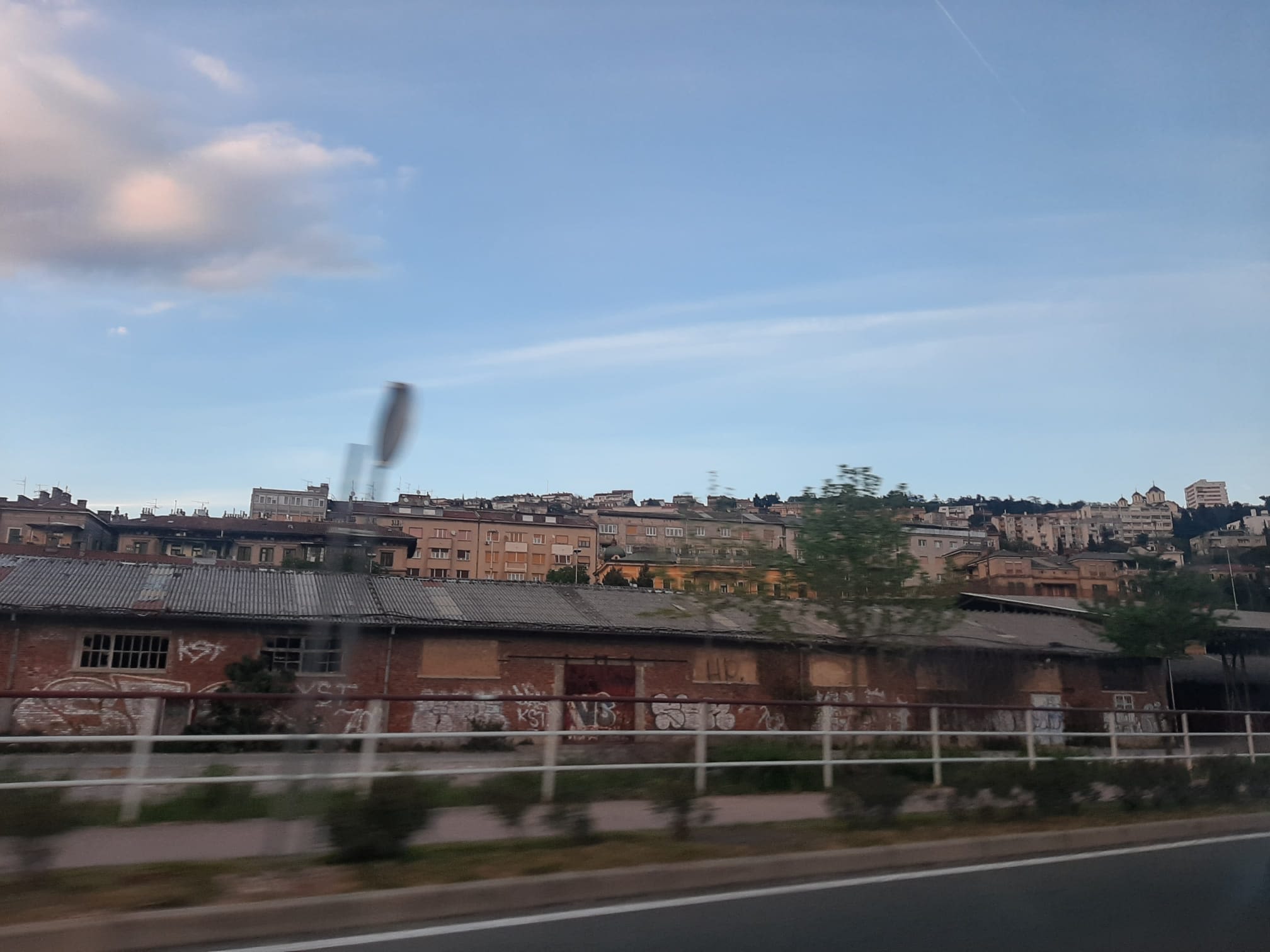Madai
A family story
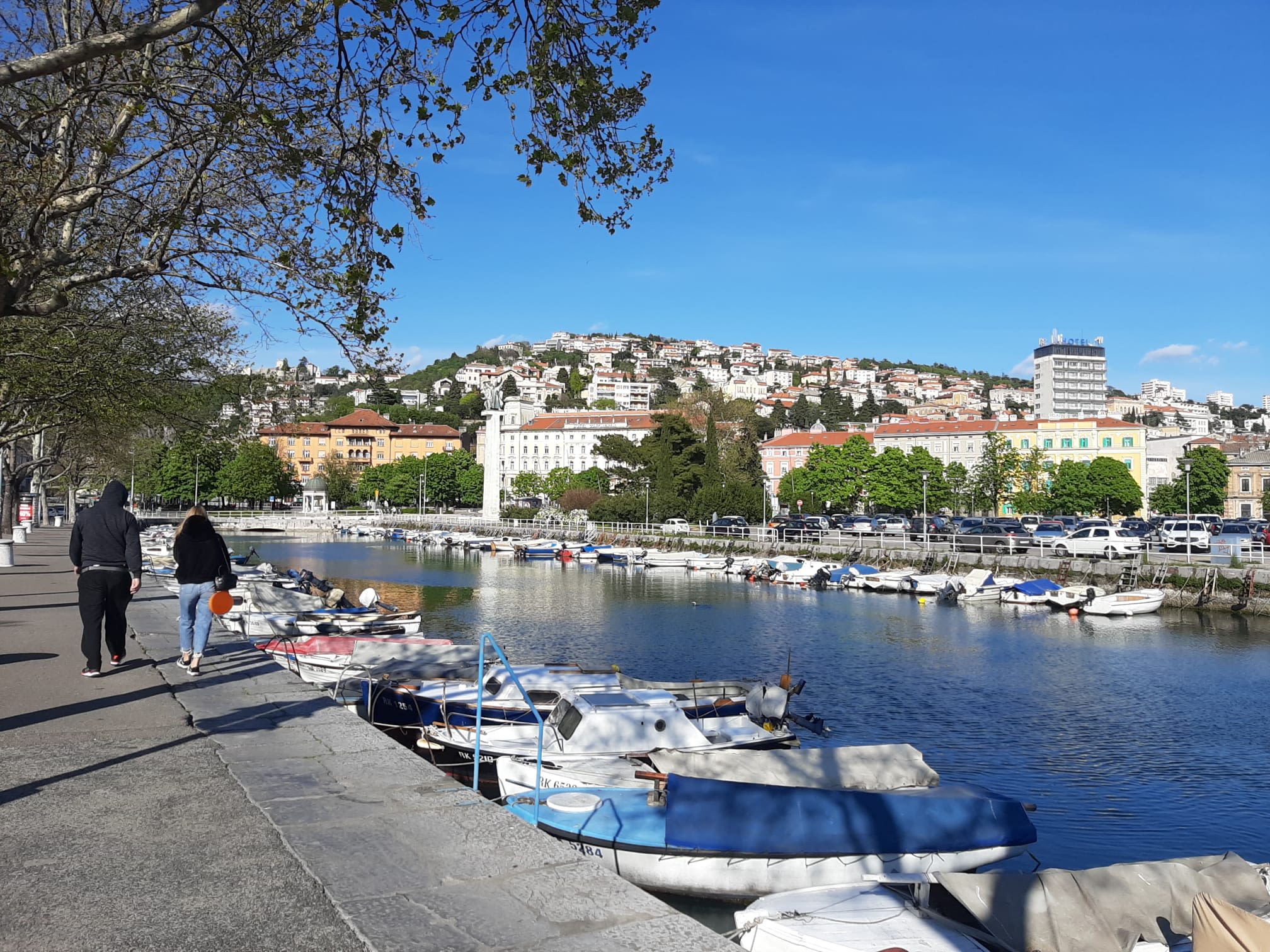
"See that palm tree over there? There, there is the house where your grandmother was born". Speaking to me is Ester, the daughter of a childhood friend of my aunt Norma, the oldest of my father's siblings. As she speaks to me, I am sitting at her kitchen table, in Rijeka, Croatia. She smiles at me, having welcomed me unhesitatingly into her home, despite the fact that I showed up unannounced, on this Easter Monday. I look at her and cannot help thinking that her face and gestures look familiar. Maybe it is just because she is welcoming and friendly, but the thought comes to me naturally, immediately. There is something in her clear eyes, in her features, in her delicate skin, that reminds me tremendously of my father's family members. Looking at her mother Nevia, Aunt Norma's old friend, the feeling is even stronger. Her eyes are blue, piercing, ice-cold. In her case, unfortunately, they are also bewildered by Alzheimer's. They seem frightened, and I struggle to look at them. But they remain powerful, ancient and sharp as blades.
Ester and Nevia look so much like my family members, it's as if they were all related, even though they were actually simply neighbours, in the middle of the last century. I suppose it could be the fact that they come from the same place that makes them so similar, and perhaps as a thought it even makes sense, yet I am stunned. Ester speaks Italian in the local dialect, the same one spoken in Trieste, the same one my family had brought with them when they left this place, and which they also used in Milan, in their home. It is a dialect whose cadences are very similar to Venetian, although it is nicer, sweeter, less boisterous. Listening to it makes me smile, also because I don't know how to speak any dialect. She, on the other hand, besides regular Italian, speaks this language too. Basically, it's as if she were more Italian than me.
Ester shows me where my grandmother was born, and as she does, something inside me opens up. An emotion that is made up of tenderness and astonishment mixed together. I wouldn't know how else to describe it. I, who, despite various attempts over the years, still know so little about my father's family, all their vicissitudes, the relationships between parents and children, the good times and the bad ones (especially of the latter, unfortunately there have been many), I stand there looking at the place where my grandmother came into the world, where, in fact, my family was born, and before my eyes I know that I have the mystery of a history that over the years I have barely touched, and which I will probably never fully possess, but which nevertheless, in one way or another, is part of me.
I do not know much about the years my family spent there, before the end of the Second World War forced many Italians to leave. Nonsense, considering that in this place generations of people of different ethnicities had lived in harmony for centuries. After the Italian defeat and the advent of Yugoslavia, however, the alternative, if one did not leave spontaneously, was having to renounce one's language, citizenship and identity, if not worse, to face the foibe. In this sense, in reality Tito had not treated the Italians any differently from how that the fascists had previously behaved towards the Croats and the Serbs, imposing the use of the Italian language on them, renaming streets and squares, discriminating people with whom until a day earlier they had lived together without any problems.
How can one believe that there was any logic in either attitude, first in the conquest of the 'irredentist' lands by the Italians, and then in the revenge by the subsequent regime, however, remains incomprehensible to me. In any case, beyond the events, the truth is that, no matter the perpetrator, it has all always been about a lot of people whose only fault was to live in the wrong place, at the wrong time in history.
Despite all this, however, I know that my family has fond memories of Rijeka. It may be that what came afterwards was going to be everything but beautiful, everything but easy: the months in the refugee camp in Latina, the years as (unwanted) guests of my great-grandmother in her flat in Milan's Via Ampère (next to Piazza San Materno and the Casoretto church), the years when they moved to Via degli Astri, in a block of flats built especially for Giuliano-Dalmatian refugees, in what was then open countryside, and is still actually a rather sad suburb of the city... well, all these events would mark my father's family in ways that were presumably the opposite of what they would have wished, that they probably could not have foreseen, and that they almost certainly, for the most part, were not prepared to handle.
Unfortunately, the consequences of all this would be seen, in the way they lived, reasoned and related to the world. Time and time again I have been stunned, bewildered, at certain attitudes or certain conceptions of life and relationships, both on the part of my relatives, and of my father himself. And even though now I think I am able to bring some things into sharper focus, and it is as if they made more sense, knowing the past, the fact that the events that these people went through affected them profoundly, and probably for anything but to their benefit, is something that cannot be overlooked. Every family is unconventional in its own way, of course. Mine was particularly so.
'We are not too many, we are many', my grandmother used to say to my grandfather, when he evidently complained about the difficulties of having such a large family. In the Rijeka years, roughly speaking, I think it is safe to say that there was poverty, there were all these children, there were illnesses (which even took some of these children away when they were still very small), and also the need to go to work from a very young age.
I know, for example, that my father would have loved to continue studying, he liked science and history. This was not possible for him, but he passed on his passion to my cousin Simone, who studied biology and is now a researcher at the university in Rome. Those were years when there was a need to make do, and probably the first to do so was my grandfather Romeo himself: he, originally from a small village near Mantua, had come to Fiume to trade cloth (perhaps riding the wave of new markets generated by the conquest of the 'irredentist lands', I imagine), and then, he had become a fishmonger.
One of my father's earliest childhood memories, by the way, is exactly about the ascent he and his father made on the donkey cart from Rijeka to Drenova, the village where they lived. My grandfather would announce their passage by shouting 'Fish!' in Italian and Croatian, people would stand on the doorstep waiting for him, and my father, a child, would hold the cash register and give the change. It was something that must surely have made him feel important, and that is probably why this memory got etched in his mind. Often, the cart was already completely empty even before they reached Drenova.

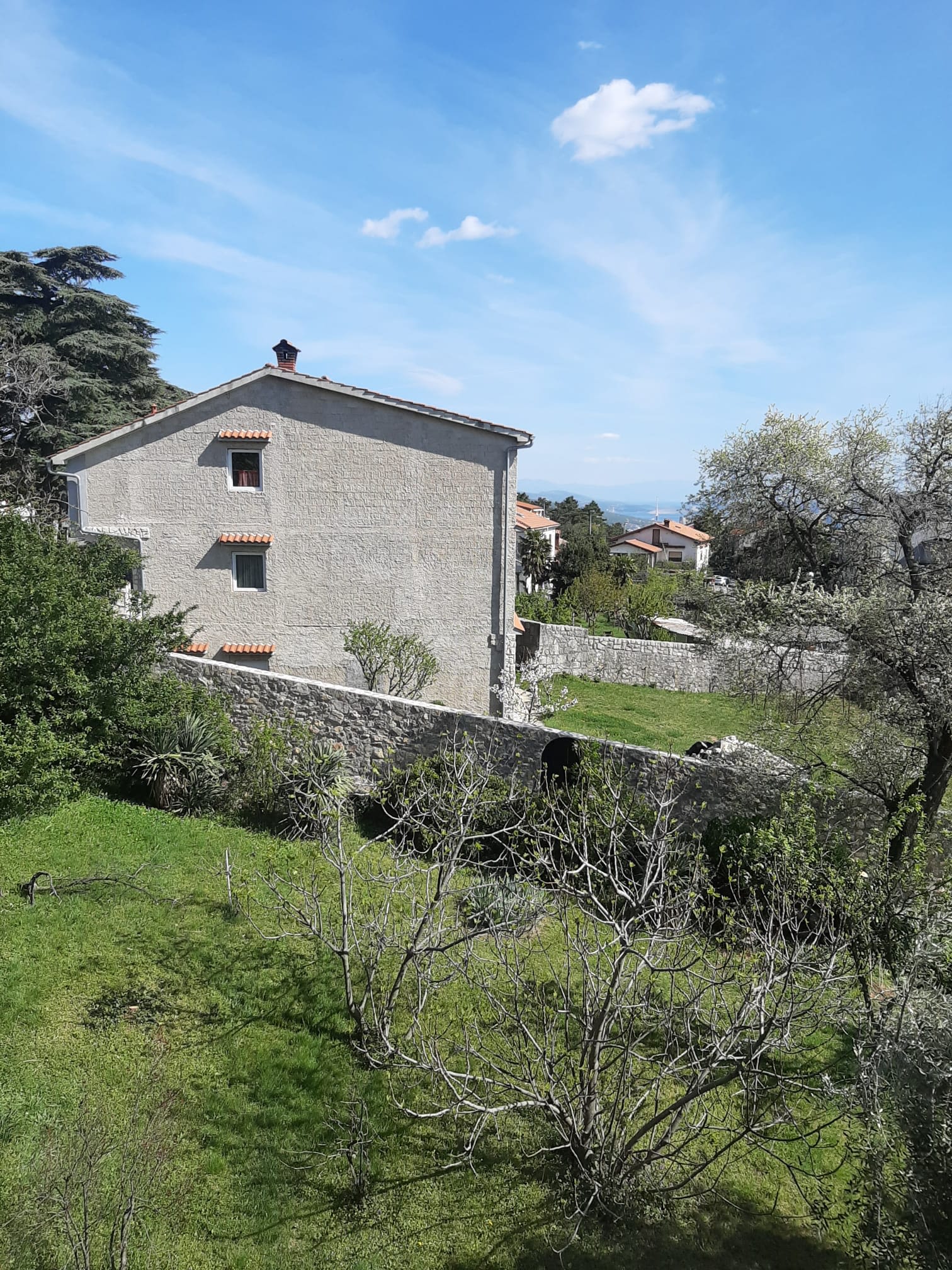
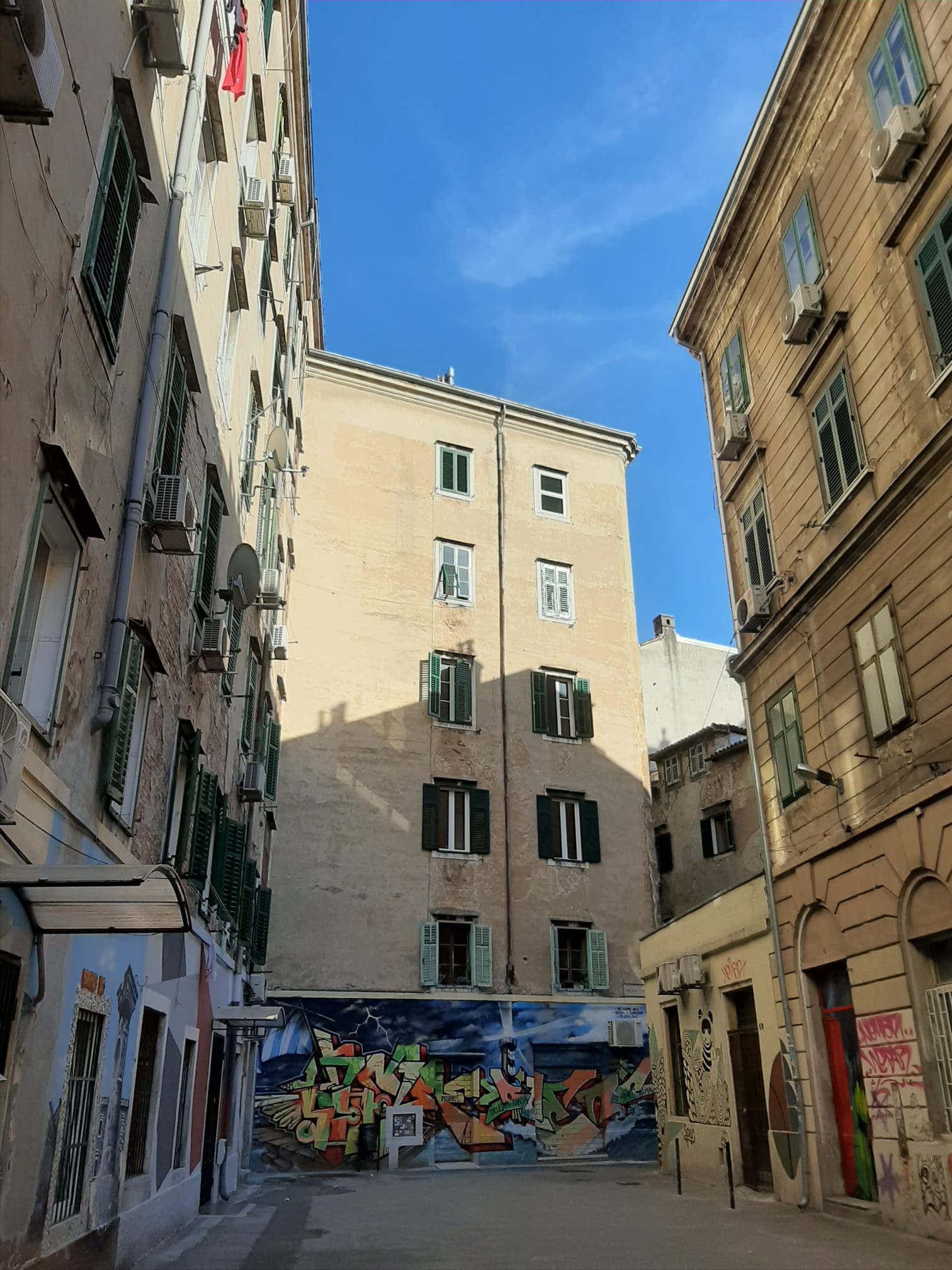
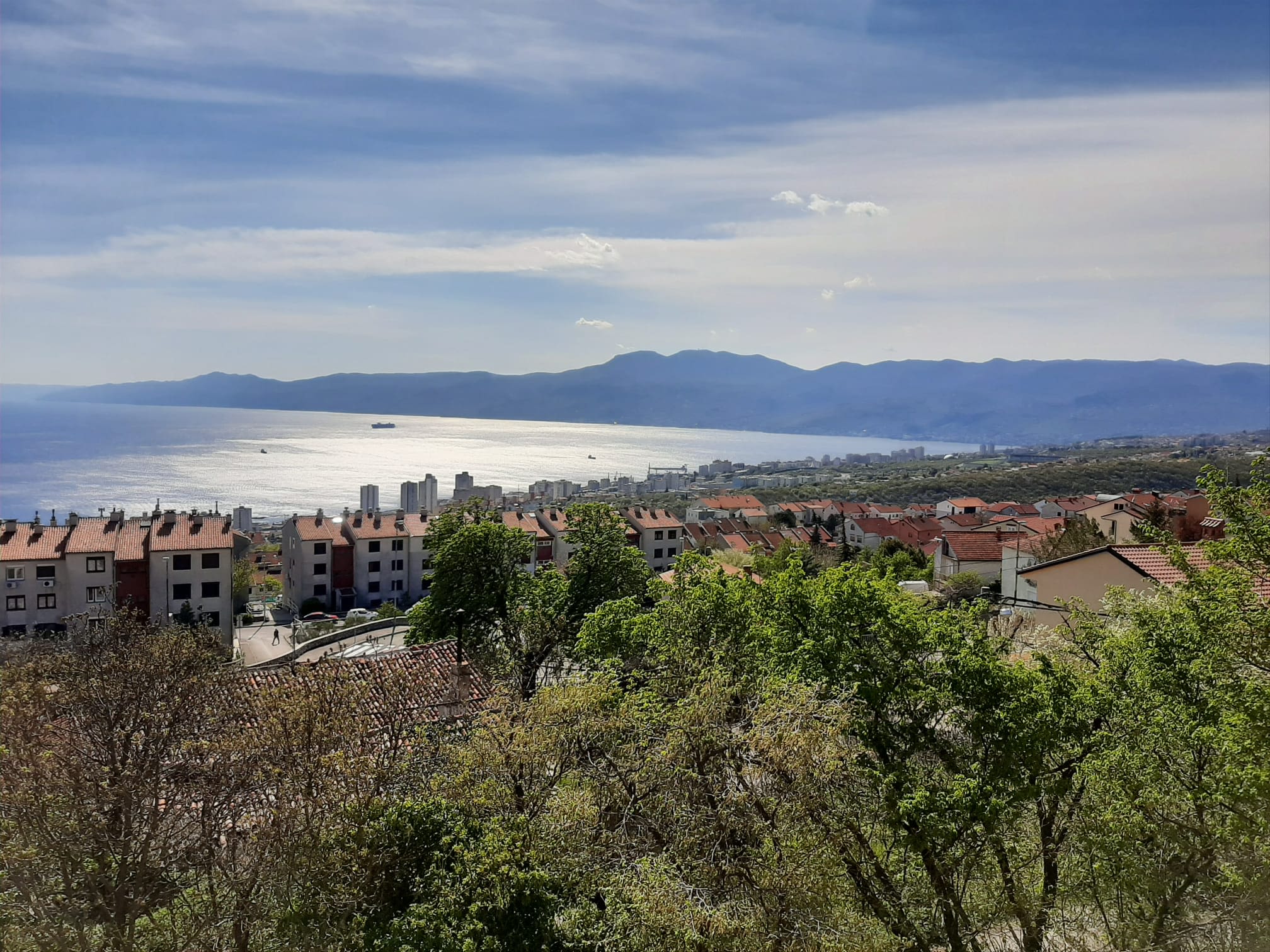
"There, that's another one of the houses where your family lived. Through that wall they used to pass each other pots and pans with things to eat,' Ester tells me again, extending her arm from her sun-filled balcony. The view is wonderful, the sea sparkling, and I can distinctly imagine my relatives passing casseroles and pans from one side to the other of that little grey wall, in the confusion of the meal, exchanging this small form of support, sharing whatever little there is, but which, however meagre, was for everyone. I think of these things and I have no doubt that, however frugal, life here was also beautiful. And I can only imagine how much sadness there was in their hearts when they left. Who knows if they thought they would return, who knows if they hoped. It is a question that, I realise now, I never asked. I'll try asking Aunt Norma, next time I get a chance.
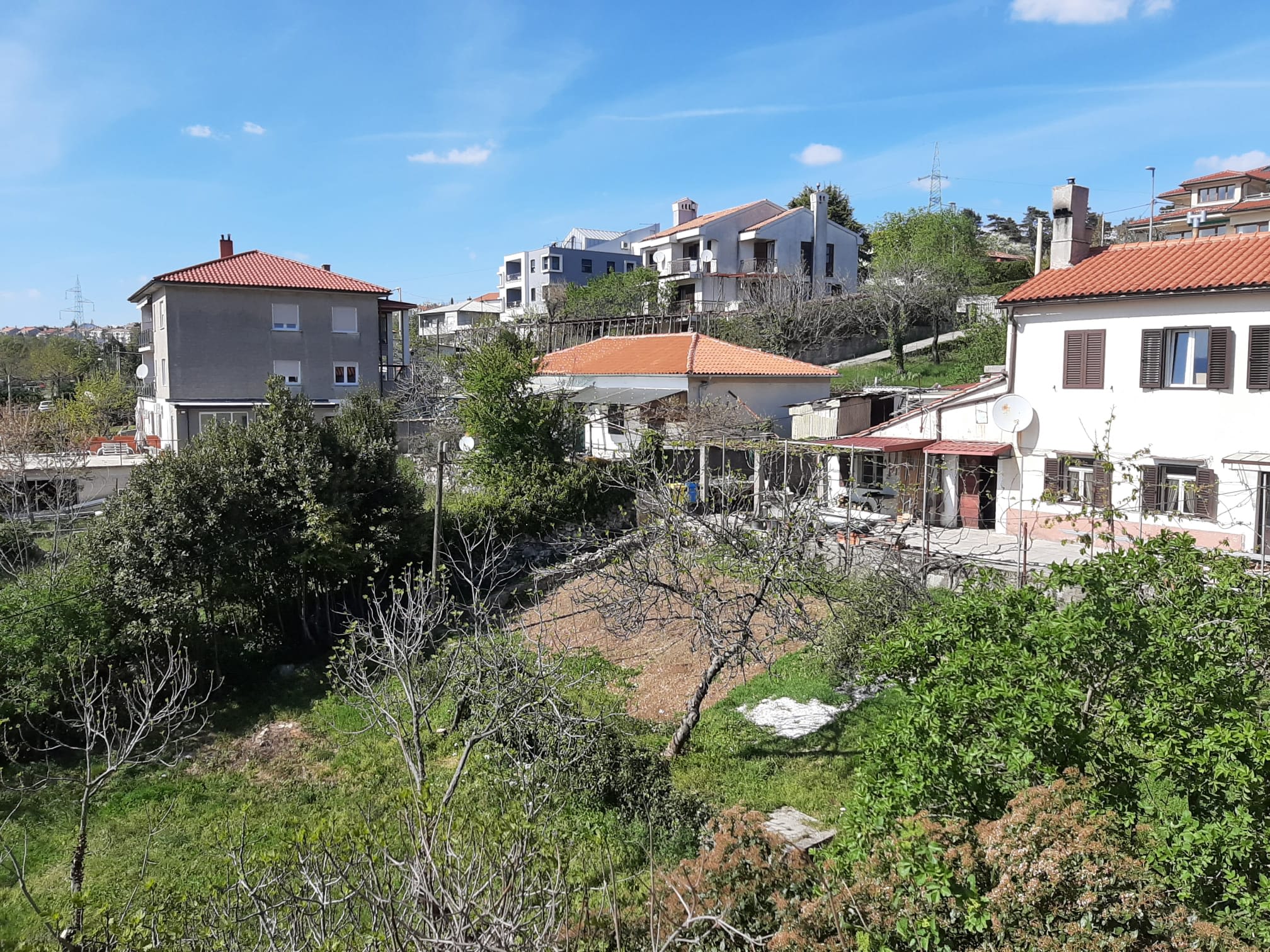
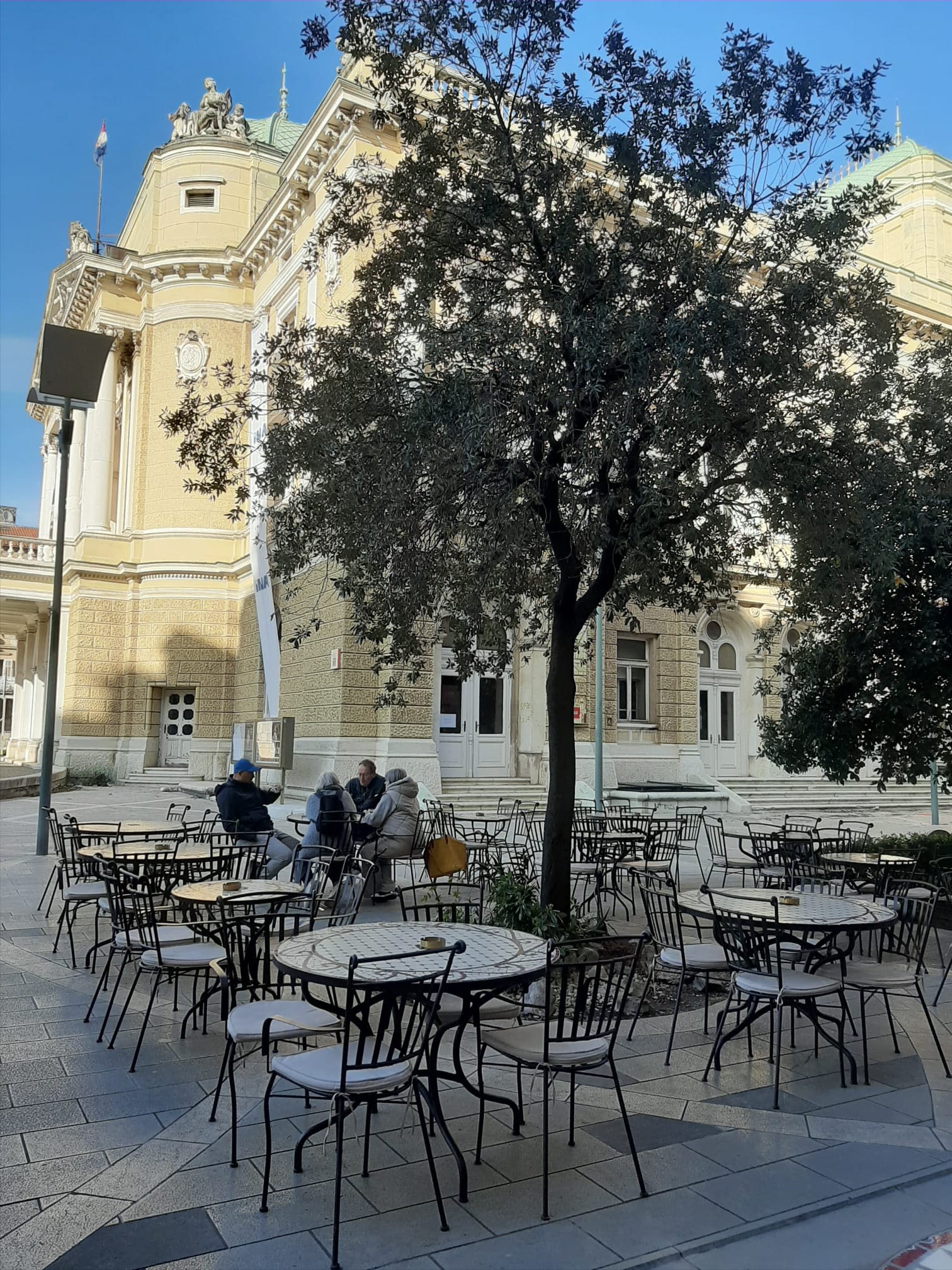
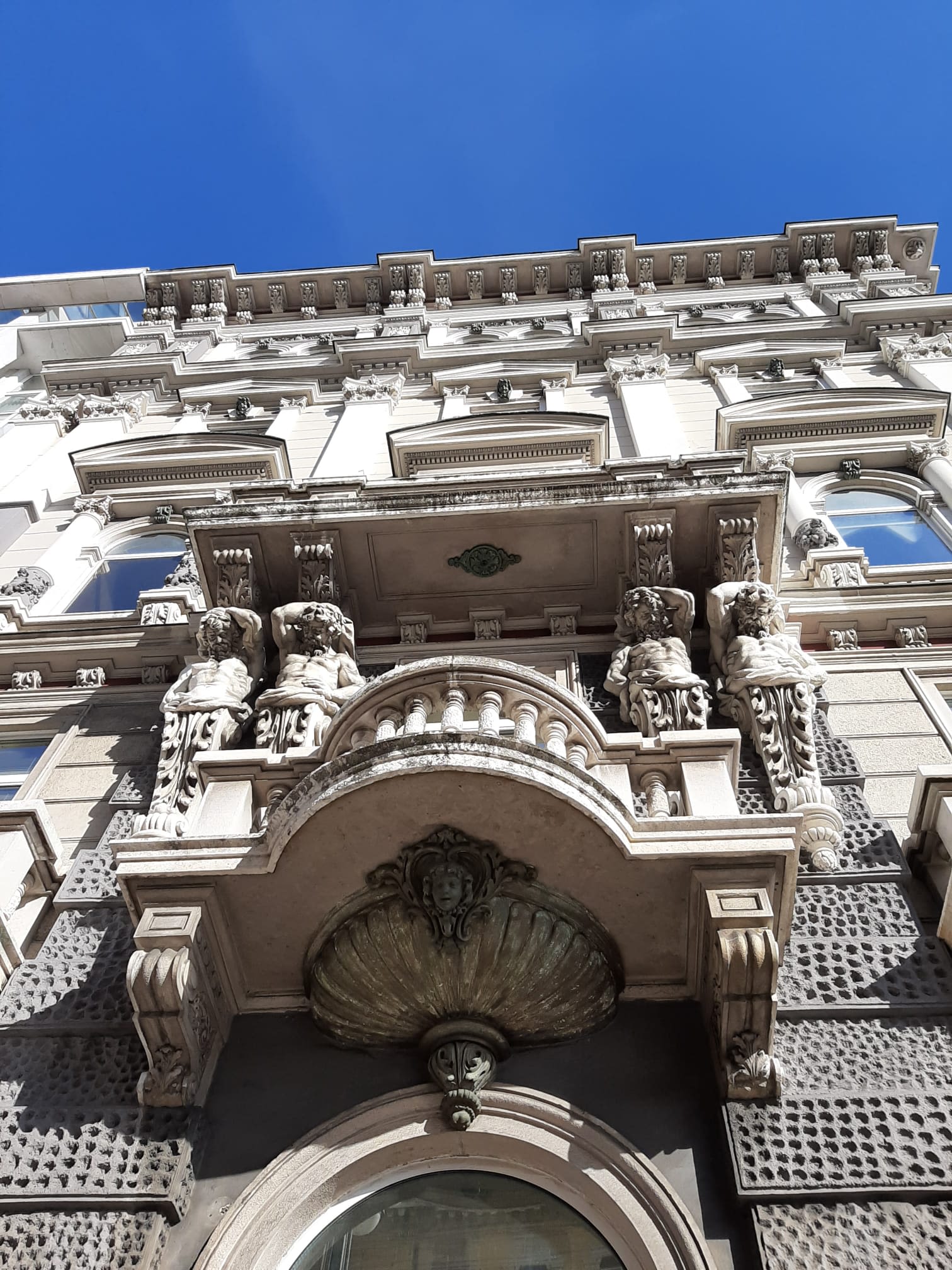
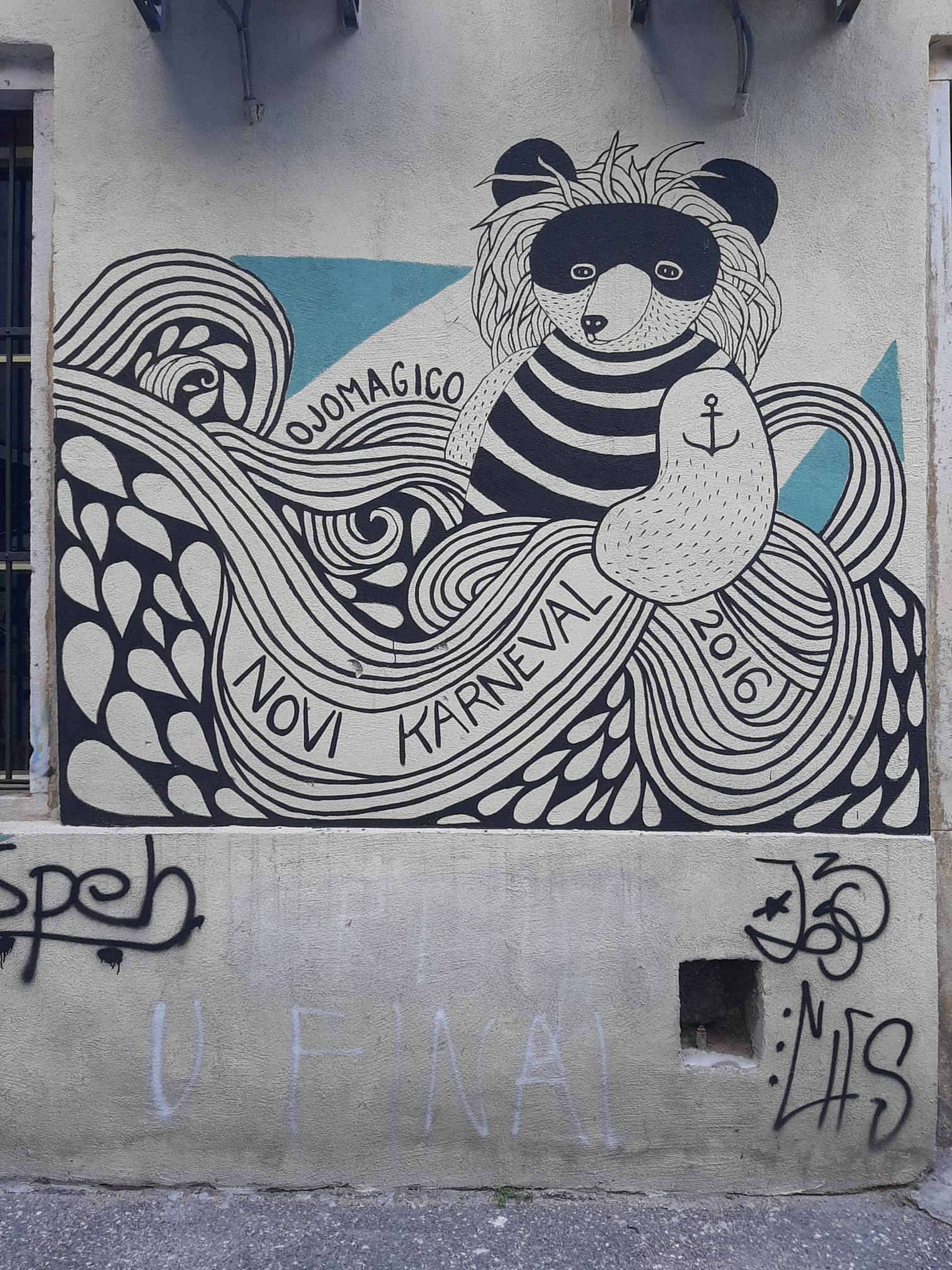
Having said goodbye to Ester, with the promise of seeing each other again (I have no doubt that this will happen, I can feel it), we go down to the city. Rijeka is also beautiful, transmitting serenity. Its construction dates back to the same period as Trieste, so it is not uncommon, in the centre, to come across elegant architecture, rich in inlays and statues.
Apparently, it was also Croatia's rock capital in the past, which is another thing that makes me smile. As we walk and stop at an intersection, I can't help but think that if things had not turned out the way they did, if history had not taken the turn it did, over there, in some parallel universe, this could have been my city. (Then, it goes without saying that if things had not turned out as they did, I would likely not have come into the world). But still, in that moment, that thought strikes me. Feeling the need to say it out loud, I tell Stephanie, my friend.
She replies that she would have seen me fitting well there, and from her tone it's as if she'd had the same thought as me, at the same time. At this point, my imagination starts to go on its own. I let myself be carried away by the sound of the sea, the smell of the city and the joy of being here at this moment, in this place. It is something I had been waiting for for a long time. I even seem to hear rock music in the background...
Here’s a selection of old photos of Rijeka, taken from public databases, to imagine what it would have looked like when my family lived there.
P.S. The title of this post is an expression that is used in Croatian in exactly the same way as Italian. It means something like "really?", or "seriously?", and it is used to express surprise. I have written it without any spacing because they pronounce it slightly differently, as if it were a single word (maybe it is, I have not investigated). The meaning, however, is exactly the same. I discovered it for the first time on this trip and I loved it, perhaps also because I think that in Italian it is not used so often anymore. I wrote it to remind myself of it, and also because it seemed to me that, given the theme, it was fitting. "I went to visit the town in Croatia where my family is from, I met an old neighbour of theirs, and the crazy thing is that it happened by chance." "No way, Ma dai!"
URLs to the openly licensed source material used:
https://www.europeana.eu/en/item/378/https___repozitorij_muo_hr__pr_i_id_10207
https://www.europeana.eu/en/item/378/https___repozitorij_muo_hr__pr_i_id_10174
https://www.europeana.eu/en/item/378/https___repozitorij_muo_hr__pr_i_id_10327
https://www.europeana.eu/en/item/378/https___repozitorij_muo_hr__pr_i_id_11945
https://www.europeana.eu/en/item/378/https___repozitorij_muo_hr__pr_i_id_11947
